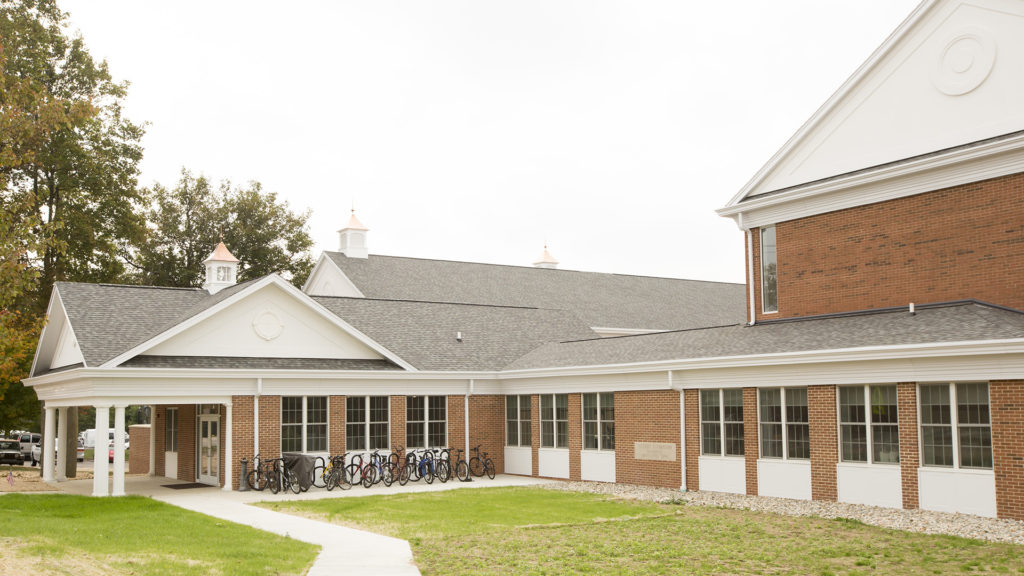There are few things more frightening for a college sophomore than finding out your off-campus house has bedbugs. That was me last year. Technically speaking, they were bat bugs, meaning they originated from the bats living in our walls, but when bat bugs are hungry, they feast just like their bedridden friends.
My first off-campus experience was subpar to say the least. My anticipated roommate left abruptly for a job opening in the Trump Administration, pipes burst, the air-conditioning broke, and I spent second semester living in constant fear that the blood-hungry bugs from upstairs would make a pilgrimage down to my room on the first floor.
Despite this, I am still not an advocate of on-campus housing for upperclassmen. But that could change if the college provided better options.
The college has said in recent years they would prefer more students to live on-campus. Whether the reasoning is related to on-campus culture, safety, or financial concerns, the college should update its housing options to reflect its new goals.
As it stands today, on-campus housing does have some benefits. Most notably, the ease of mind that comes with the college being your landlord. If a pipe bursts or you encounter pest problems, you don’t have to play tug of war with your landlord — instead, you can just call the full-time maintenance staff.
Ever forget to pay the heating or internet bill? The fear of your credit score dropping also dissipates when the college handles your utilities. Many on-campus housing options also have cleaning services that at the very least, do seasonal cleans, and in some instances, vacuum and clean the bathroom twice a week.
Hillsdale College dorms do provide all these amenities, but most upperclassmen don’t want to and should not have to live in a dormitory. They don’t need the same dorm culture freshmen might appreciate — they’ve already made friends and have become accustomed to living on their own.
They don’t want to live in a one-room living space because once you’re that close to adulthood, you desire living arrangements that include kitchens and areas for social gatherings.
Shockingly, a 21-year-old junior isn’t going to want to live in a dry dormitory shared with freshmen because 21 years in (one of the oldest legal drinking ages in the history of the U.S. and the world), he probably feels entitled to keep a six-pack of beer in his fridge.
No upperclassman should be charged $730 more a semester to live in the Suites either. Though it’s convenient to once again have an individual room, a single bedroom in the Suites is little more than a dorm room, with only enough space for a twin bed, a desk, and drawers. Each suite has, as the college describes it, a “kitchenette,” which amounts to a sink, microwave, and a fridge, leaving little room for anything but microwaveable meals. This shouldn’t be considered an adequate alternative to off-campus living.
Hillsdale, Michigan isn’t exactly pressed for space. Housing for on-campus upperclassmen does not need to feel cramped. Nor should it cost at least $1,000 more than what an apartment at 42 Union costs (one of the more expensive off-campus living options).
Instead of building new dorms with shared bathrooms, build larger suites or townhouses, with walls that aren’t paper thin, floors that don’t crack, and yes, with a real kitchen — stove and oven included. Off-campus townhouses are currently available to students, but at a massive cost. Single rooms in one of the recently-constructed College Park Townhouses cost about $850 a month.
Hillsdale would be following many other small-midsize private institutions that have taken the same path. While on a college sailing trip, I visited Hope College in Holland, Michigan. Like Hillsdale, the school is well-funded, but unlike Hillsdale, it has used some of its endowment to build on-campus townhomes called cottages, built in circular formations to encourage community between the homes.
“As you learn, develop and grow in and outside of the classroom, your Hope housing options grow with you,” The Hope College website states. “You’ll start off living in highly communal residence halls your first and second years, then move to more independent but college-supported cottages and apartment living during your junior and senior years.”
Living on-campus does not need to make upperclassmen feel like they’ve been deprived of independence. There is a balance to be struck between the support the college can offer and the freedoms upperclassmen should be able to earn. The college should further its mission of fostering self-governance and develop an adequate plan for upperclassmen housing.

